DNVN - According to the leader of the Da Nang Department of Health, the causes come from the system of guiding documents and difficulties in organizing bidding and procurement, which still causes a shortage of medicine for medical examination and treatment and disruption in the supply of medical supplies at public hospitals in the area.
Stuck in the system of guidance documents
As reported, although there have been many improvements, there are still local and temporary shortages of medicines for medical examination and treatment; interruptions in the supply of medical supplies and chemicals at certain times at some public health facilities (public hospitals) in Da Nang .
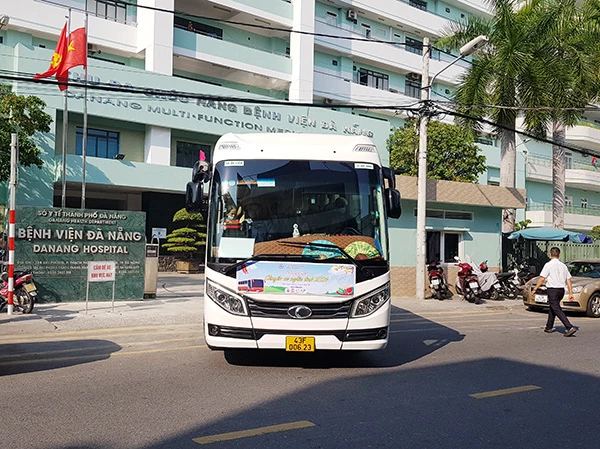
As a Grade 1 hospital, responsible for examining and treating people in Da Nang City and some provinces in the Central Highlands, Da Nang Hospital still has a temporary shortage of medicine while waiting for the bidding results.
From January 1, 2024 to before May 17, 2024, drug procurement shall be carried out in accordance with the Bidding Law No. 22/2023/QH15 and Decree 24/2024/ND-CP dated February 27, 2024 of the Government detailing a number of articles and measures to implement the Bidding Law on contractor selection; but there is no circular of the Ministry of Health regulating drug bidding at public hospitals.
Therefore, the centralized bidding at the Da Nang Department of Health to supply drugs in 2024 - 2026 for public hospitals in the area and the additional drug procurement packages organized by public hospitals to select contractors must be temporarily suspended pending guidance documents. Meanwhile, the amount of drugs in stock at public hospitals is mostly only enough to fully meet the needs of medical examination and treatment in the first quarter of 2024.
On May 17, 2024, the Ministry of Health issued Circular 07/2024/TT-BYT on drug bidding at public hospitals; which stipulates that public hospitals must organize bidding to purchase drugs in the list of drugs within the scope of benefits for health insurance participants to supply to patients at drug retail establishments on hospital premises.
Because of this, public hospitals must simultaneously organize drug procurement for inpatient treatment, outpatient dispensing, and drug supply at retail drug stores such as pharmacies and hospital drug counters. According to the process, the procurement bidding process lasts at least 2-3 months or longer depending on the size of the bidding package and the form of procurement. Therefore, most public hospitals must organize many consecutive procurement bidding packages.
In particular, priority is given to purchasing drugs to maintain the operation of public hospitals in urgent cases, avoiding harm to people's lives and health; or emergency treatment for patients according to the provisions of the Law on Medical Examination and Treatment. Specifically, priority is given to purchasing emergency drugs, basic drugs, necessary for inpatient treatment and outpatient dispensing first; the remaining drugs will be additionally purchased in the next phase.
At the same time, in practice, some problems have arisen due to the lack of consistency and uniformity in the guidance documents of management agencies at all levels; some unclear contents have led to different understandings and opinions of individuals, agencies and organizations participating in the bidding and procurement work. Meanwhile, seeking opinions from the Ministry of Planning and Investment and the Ministry of Health on some difficult contents, problems and issues arising during the bidding process often takes a long time, affecting the progress of bidding and procurement.
And stuck in the actual implementation
Regarding the difficulties and problems in the procurement process, Ms. Tran Thanh Thuy said that in reality, the bidding results only selected contractors for about 70-80% of the list of drugs invited for bidding, leading to insufficient supply of drugs according to the needs of public hospitals.
The reason is that the contractor could not be selected; including contractors not participating in the bidding due to the unsafe supply of drugs (addictive drugs, psychotropic drugs (Fentanyl, Morphine, Diazepam, Pethidine), anesthetic drugs (Lidocaine + Adrenaline), some infusions, antibiotics, drugs for specialized treatment of tumors, psychiatry, eyes...) or due to the small number of bids; the bid price of drugs is higher than the planned price (Insulin, antibiotics, drugs for specialized treatment of tumors, psychiatry, eyes...).
Some drugs have approved winning bid results but the contractor cannot supply the correct quantity and schedule required (Paracetamol for infusion, narcotic drugs, psychotropic drugs, some antibiotics such as Imipenem, Meropenem, Ciprofloxacin, Ofloxacin...).
The main cause is due to overload and disruption of the global drug supply chain, leading to a shortage of drug supply and raw materials for drug production; or some problems and difficulties in granting and renewing registration numbers for import licenses for drugs and raw materials for drug production.
In addition, medical units are still passive in determining needs and developing drug procurement plans due to the impact of epidemic factors, changes in disease patterns, implementation of new techniques and increased requirements for medical examination and treatment. This leads to sudden drug needs, such as the need to use drugs that are awarded in excess of the purchased quantity, or the need to use new drugs that are not yet on the list of awarded drugs.
According to Director of the Da Nang Department of Health Tran Thanh Thuy, handling drug shortages after winning a bid often takes time, so it is impossible to promptly provide enough drugs to meet these arising drug needs.
In addition, the human resources participating in the organization of bidding and procurement of the Da Nang Department of Health and public hospitals are mobilized from the professional force, so they are lacking in quantity (many units do not have enough staff to meet the requirements of the Expert Group and Appraisal Group according to Decree 24/2024/ND-CP); limited in professional expertise and bidding experience; lack of consulting units and service providers in this field.
“Meanwhile, the implementation guidelines have new changes and are in the process of being finalized. The implementing units are in a context of both researching, implementing, and updating according to the new documents, which affects the progress and increases the workload,” Ms. Tran Thanh Thuy emphasized.
Hai Chau
Source: https://doanhnghiepvn.vn/tin-tuc/vi-sao-van-con-thieu-thuoc-kham-chua-benh-tai-cac-benh-vien-cong/20241024064249410



![[Photo] President Luong Cuong presents the 40-year Party membership badge to Chief of the Office of the President Le Khanh Hai](https://vphoto.vietnam.vn/thumb/1200x675/vietnam/resource/IMAGE/2025/5/19/a22bc55dd7bf4a2ab7e3958d32282c15)
![[Photo] General Secretary To Lam attends the conference to review 10 years of implementing Directive No. 05 of the Politburo and evaluate the results of implementing Regulation No. 09 of the Central Public Security Party Committee.](https://vphoto.vietnam.vn/thumb/1200x675/vietnam/resource/IMAGE/2025/5/19/2f44458c655a4403acd7929dbbfa5039)

![[Photo] Close-up of Tang Long Bridge, Thu Duc City after repairing rutting](https://vphoto.vietnam.vn/thumb/1200x675/vietnam/resource/IMAGE/2025/5/19/086736d9d11f43198f5bd8d78df9bd41)
![[Photo] Panorama of the Opening Ceremony of the 43rd Nhan Dan Newspaper National Table Tennis Championship](https://vphoto.vietnam.vn/thumb/1200x675/vietnam/resource/IMAGE/2025/5/19/5e22950340b941309280448198bcf1d9)

















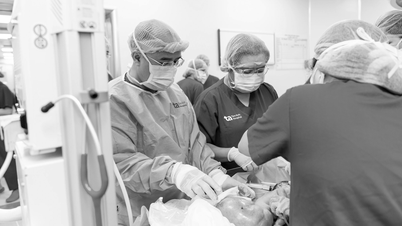
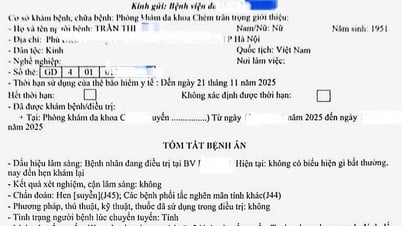
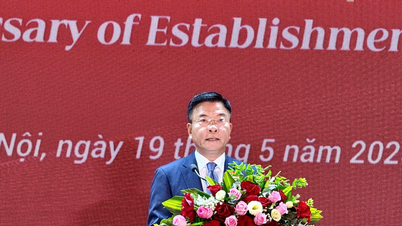










![[Photo] Prime Minister Pham Minh Chinh inspects the progress of the National Exhibition and Fair Center project](https://vphoto.vietnam.vn/thumb/1200x675/vietnam/resource/IMAGE/2025/5/19/35189ac8807140d897ad2b7d2583fbae)




















































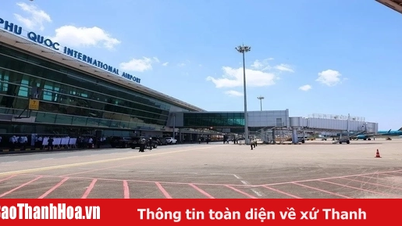






![[VIDEO] - Enhancing the value of Quang Nam OCOP products through trade connections](https://vphoto.vietnam.vn/thumb/402x226/vietnam/resource/IMAGE/2025/5/17/5be5b5fff1f14914986fad159097a677)





Comment (0)